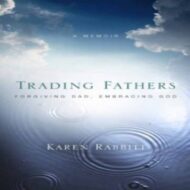My husband’s cancer, diagnosed in 2009 and treated over the next two years, did not traumatize me.
“What do you mean by that,” you might ask. “Wasn’t it intense and scary and didn’t you cry?”
 Yes, yes, and yes. But genuine trauma overwhelms our coping abilities and leaves unprocessed feelings stuffed away. We walk away from trauma with anger and pain and fear that are tucked away in the closet of the back bedroom, split off from the physical memory of the event. If we want to live an emotionally healthy life, we must eventually clean out that closet. The memories and the feelings need to be reintegrated into a whole experience. Lies need to be identified and disavowed. God’s truth needs to be experienced. Until the healing happens, the memory of the difficult event feels like it happened yesterday.
Yes, yes, and yes. But genuine trauma overwhelms our coping abilities and leaves unprocessed feelings stuffed away. We walk away from trauma with anger and pain and fear that are tucked away in the closet of the back bedroom, split off from the physical memory of the event. If we want to live an emotionally healthy life, we must eventually clean out that closet. The memories and the feelings need to be reintegrated into a whole experience. Lies need to be identified and disavowed. God’s truth needs to be experienced. Until the healing happens, the memory of the difficult event feels like it happened yesterday.
No memory-from getting Jerry’s diagnosis to the last PSA test-feels that fresh. It was intense and I was scared and I cried a fair amount. When the first surgery had to be stopped because Jerry would have died from a life-threatening reaction to the anesthesia, I trembled for an hour as my friend Judy and I prayed. I lost some sleep and I ate too much. But on the whole, I stayed in touch with my emotions through it all. No memory brings up any pain.
That’s how we know we need healing–when a memory throws us back into an emotional fire. When stuffed-down memories do flash through our minds, we feel like we are right there again.
If that’s your experience, perhaps it is time to ask Jesus, “How do I heal this memory? What do you want to do with this fragmented piece of my heart?” Take the time to ask him to go with you to the old memories and show you where he was. Ask him what his perspective is on that trauma. Find a safe person to process the pain with.
Though the cancer process was not traumatic, childhood abuse had left my heart fragmented for years, so I know what those intrusive memories and feelings are like. Perhaps you are one of the many who walk around with a traumatized heart. May I pray for you?
Father, you know the fresh pain that comes every time that memory comes up. Please show me how to heal. What people, what resources, what kinds of interactions with you do I need? Give me grace to face what must be faced. If it was easy, I’d have done it before. I need your help. For your glory, Amen.


 I respect Dr. Zacharias as a thinker, apologist, and cultural commentator. I’ve listened to his radio
I respect Dr. Zacharias as a thinker, apologist, and cultural commentator. I’ve listened to his radio